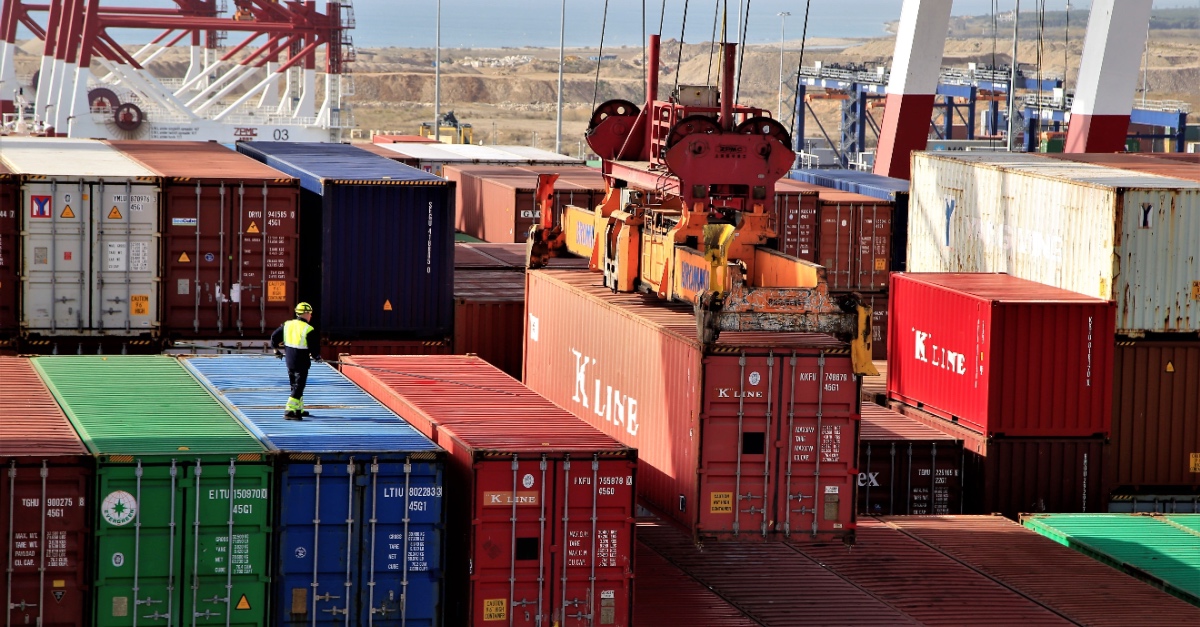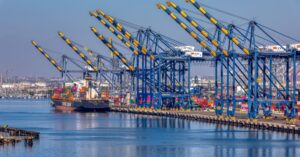Businesses across the country, especially those with supply chains operating out of the East and Gulf Coast ports, are bracing for impact as the contract negotiations between the ILA and USMX continue to stall. The potential strike could deal significant blows to the economy, particularly with the holiday season in full swing, creating a challenging situation for businesses already under pressure.
As the strike becomes more of a reality than potential, shipping lines have positioned themselves to take advantage, leading to soaring share prices. Continue reading as we bring you the latest news and trends from across the freight industry, especially with ILA’s imminent strike, which is mere days away.
ILA and USMX Discussion Stalls As Supply Chains Brace for Impact
Contract negotiations with the International Longshoremen’s Association (ILA) have stalled, creating panic over the Sep. 30 deadline. The threat of a strike along the Eastern and Gulf Coast Ports will severely impact U.S. supply chains. The ILA is pushing for wage increases and job security while opposing automation.
However, the United States Maritime Alliance (USMX) argues it is necessary for efficiency. If no agreement is reached in the coming days, Oct. 1 will mark day one of the strike, and it is poised to disrupt imports and exports, lead to shortages, increase prices, and hurt retailers ahead of peak season. Businesses are already exploring mitigation strategies, and the federal government continues to monitor the situation.
Railroads Set Deadlines as US Port Strike Looms, Exporters Brace for Disruptions
As stakeholders remain unsure of the looming ILA strike set for October 1, railroads like CSX, Canadian National, and Norfolk Southern have set weekend deadlines for exporters to drop off containers ahead of a possible strike that will most likely halt operations at the US East and Gulf Coast ports.
The deadlines announced by the railroads vary by terminals and ports. Alternative storage solutions are being prepared for containers. If the strike continues, they plan to leverage strategically staged railcars to resume operations quickly, though delays and disruptions are expected.
Shares of Shipping Lines Soar Amid Looming ILA Strike
As we approach the current contract deadline between the ILA and USMX, stakeholders are divided in their reactions and benefits. Shares of shipping lines like A.P. Moller-Maersk have soared 4.9% as the market anticipates a costly disruption. Maersk shares have soared 20% in just the last two weeks alone.
The company recently introduced a surcharge for East and Gulf Coast cargo to cover operational challenges resulting from the strike. Considering that the strike will impact over 45,000 dockworkers, it is clear that labor could be a problem, therefore putting a drag on operational efficiency. Even a one-week strike could cause problems and delays for the next month.
U.S. Administration Targets De Minimis Ruling with New Import Duty Proposal
The Biden administration has signed an executive order to limit the loopholes in the de minimis exemption and prevent businesses, especially those in the e-commerce sector, from taking undue advantage. The executive order will target international e-commerce platforms like Shein and Temu, raising potential costs that could lead to higher consumer prices.
Although experts and industry leaders expect the company to adapt via strategic supply chain shifts, smaller businesses may struggle with the new regulations. The proposed changes also aim to improve product details transparency and prevent exemption exploitation.
Mexico Enjoys Trade Boom With China as U.S. Trade Wars Continue
Trade between China and Mexico is surging as the U.S.-Chinese trade wars continue to pick up steam. Chinese companies are increasingly moving production to Mexico to bypass and exploit international shipping loopholes. The Mexican government welcomes the move as it allows them to bolster their economy.
The shift is driven by nearshoring and the USMCA, which allows goods produced in Mexico using Chinese components to avoid tariffs and qualify for “Made in Mexico” labeling. Recent data shows a sharp rise in container trade from China to Mexico, with logistics firms like Maersk expanding operations in the regions. The U.S. administration is discussing potential tariff changes in a move to block the loophole, even as elections near.
Seamless Transportation With COGISTICS Transportation
COGISTICS Transportation stands out with its customer-centric approach, deep industry knowledge, and commitment to innovative, eco-friendly 3PL solutions. We transform logistics challenges from air, land, and ocean freight operations into strategic advantages around the clock and worldwide. Our commitment to your success is unwavering, focusing on enhancing efficiency, visibility, peace of mind, and expedited freight. Book a meeting with us today.




